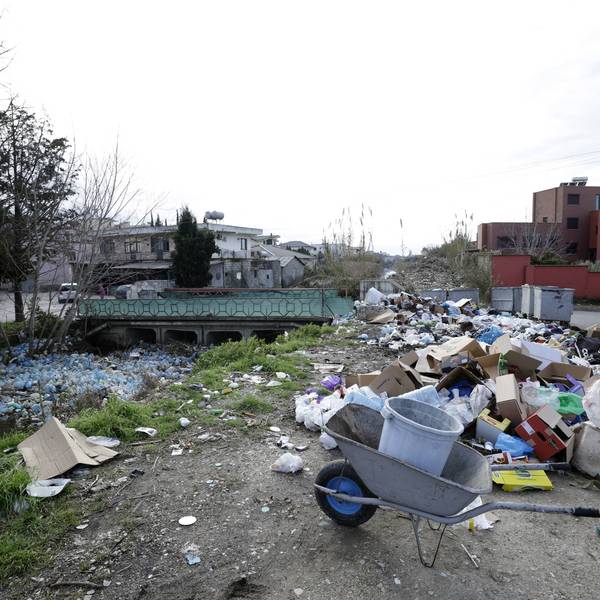In a first-of-its-kind lawsuit, California Attorney General Rob Bonta on Monday sued oil giant ExxonMobil for allegedly deceiving the public about the recyclability of plastics so as to continue increasing production.
The 147-page lawsuit, filed in San Francisco County Superior Court, came following a yearslong investigation that environmental groups were hoping would lead to legal action. They widely celebrated Bonta's move.
"This is the single most consequential lawsuit filed against the plastics industry for its persistent and continued lying about plastics recycling," Judith Enck, founder of the advocacy group Beyond Plastics and a former senior Environmental Protection Agency official, said in a statement.
"Attorney General Bonta is leading the way to corporate accountability and a cleaner and healthier world. This lawsuit will set an invaluable precedent for others to follow," she added.
Richard Wiles, president of the Center for Climate Integrity (CCI), echoed Enck's take.
" Big Oil and the plastic industry's lies are the beating heart of the plastic waste crisis, which makes California's groundbreaking lawsuit against ExxonMobil the most important legal action to date in the global fight against plastic pollution," Wiles said in a statement.
Plastics are made from fossil fuels, and ExxonMobil, the largest U.S.-based oil and gas producer, makes polymers that are turned into single-use plastics. Virgin plastic production has skyrocketed globally in recent decades, even as research has shown the damaging environmental and health impacts it has across its life cycle.
The petrochemical industry has long promoted recycling as a solution to plastics pollution. ExxonMobil, for example, placed a 12-page "advertorial" in Time in 1989 titled "The Urgent Need to Recycle," Bonta's office said in a statement. ExxonMobil and other companies also helped push the use of the "chasing arrows" symbol, which gives the often false impression that a product is recyclable when it's not, or unlikely to be in most areas.
Plastics recycling comes with enormous technical and economic constraints that the industry has understood—and hid—for decades, critics say. A 68-page CCI report released in February laid out the evidence against the industry, including, for example, a 1986 trade group report stating that "recycling cannot be considered a permanent solid waste solution [to plastics], as it merely prolongs the time until an item is disposed of."
Estimates indicate that plastics recycling rates are far lower than the public realizes, at just 6% in the U.S. and 9% worldwide. A recent poll by CCI and Data for Progress found that U.S. voters, on average, thought the rate was 45%.
The same poll found that most U.S. voters, when prompted with information about the industry's history, supported their state taking legal action for recycling deception, as California has now done.
The lawsuit from Bonta, a Democrat who's held office since 2021, represents a "new front in the legal battles against oil and gas companies over climate and environmental issues," according to The New York Times.
Dozens of U.S. cities and states, including California, have already filed lawsuits against Big Oil companies for their role in the perpetuating climate breakdown, but this is the most significant plastics lawsuit, observers say. New York did sue PepsiCo last year for its role in polluting the Hudson River with plastics.
Wiles of CCI drew a parallel between the newly announced suit and the dozens of climate suits that had preceded it, saying they both target the same types of lies.
"From climate to plastics, Exxon's entire business model is based on lying to the public about the harms its products cause," he said.
In recent years, the petrochemical industry has touted "advanced recycling," sometimes called "chemical recycling," in which plastic waste is broken down into virgin-like new material. However, the statement from Bonta's office argues that there are severe limitations to the technology and says that ExxonMobil's advanced recycling program is "nothing more than a public relations stunt meant to encourage the public to keep purchasing single-use plastics that are fueling the plastics pollution crisis."




